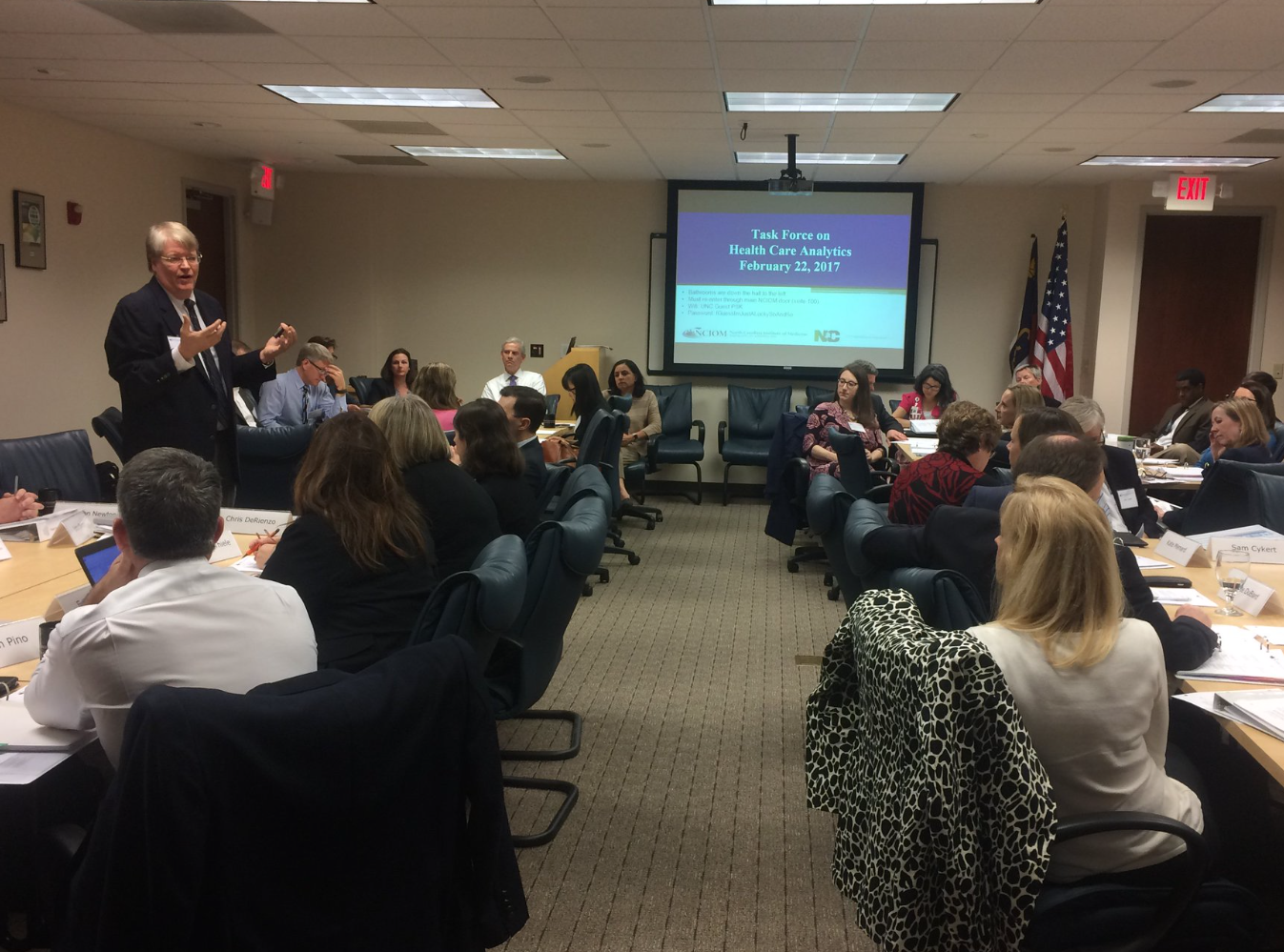


The NCIOM is an independent organization focused on identifying evidence-based solutions to the health problems in North Carolina. We identify solutions by convening task forces around specific health issues affecting our state.
We are committed to engaging a diverse array of stakeholders and remaining impartial throughout the process, as we seek to inform state health policy that addresses health issues in North Carolina. Although every NCIOM task force differs in topic, member composition, partnering organizations, and scope of work, the process typically follows a certain general method.
Each task force is made up of 30-60 stakeholders from across the state. Stakeholders include representatives of the state, legislature, local governments, health care providers, consumer groups, insurers, researchers, community members, advocates, employers, philanthropy, and others.
Each task force is led by two or more co-chairs who preside over task force meetings. A steering committee guides the work of the task force by constructing agendas, inviting speakers, and reviewing materials before distribution to the task force. NCIOM staff ensures the needs of the task force are met by facilitating discussion, authoring written materials (such as reports and fact sheets), handling meeting logistics, and dealing with other needs as they arise.
Generally, a task force meets for 6-12 months. The work can be conceptualized in two phases. The first phase is the fact-finding phase. In this phase, speakers are invited to offer their perspectives on an issue. These presentations may include research summaries and/or statistics, a description of a particular program, the challenges and opportunities a certain constituency faces, or national developments.
The second phase is the recommendation phase. At this point, the task force turns to developing consensus around a set of policy recommendations based on the findings of the first phase. The recommendations and report are initially authored by NCIOM staff during this time. At all points in the recommendation and report process, task force and steering committee members are encouraged to comment on written materials. Draft documents are circulated via email multiple times.
Two steps must occur before a task force report becomes final. Task force members must review the tentative report, make changes, and vote on the report and recommendations. In addition, because the report is issued under the name of the North Carolina Institute of Medicine, the full report must be reviewed by the NCIOM Board of Directors before it can be released.
Task force reports are available online under Publications.
Although the process described above is “typical,” no task force follows this format exactly. Smaller workgroups may be formed to explore a particular (often technical) issue in more detail. A task force may be subdivided to break up recommendations into more manageable numbers. Public meetings may be held to solicit feedback. A summit may be held at the conclusion of the work to either discuss preliminary recommendations or announce the final report. As the needs of each task force are different, the NCIOM refines the process to best address the particular issue being considered.